The Passenger
Mieczysław Weinberg
Opera in two acts, eight scenes and an epilogue
Libretto: Aleksandr Medvedev after Zofia Posmysz
A multilingual version
Co-produced by: Bregenzer Festspiele, English National Opera, Teatro Real, Madrid
Opera in two acts, eight scenes and an epilogue
Libretto: Aleksandr Medvedev after Zofia Posmysz
A multilingual version
Co-produced by: Bregenzer Festspiele, English National Opera, Teatro Real, Madrid
An opera about Auschwitz seemed unimaginable. And yet… It was composed by Mieczysław Weinberg, a Polish-Jewish Varsovian who lost his family in a death camp and of whom the opera’s director David Pountney said that he spent his life writing music honouring the memory of his murdered relatives. Weinberg’s inspiration was Zofia Posmysz’s novel The Passenger (1962). The writer was a camp survivor. The decision to testify to the atrocities of the Holocaust was an obvious one for her. The Passenger describes a voyage on a luxury ocean liner during which a Polish woman called Marta recognizes in the elegant Liese an SS overseer from Auschwitz (the German woman has a real-life name: Annelise Franz). Following the plot, Weinberg’s music is diverse, realistic and symbolic at the same time: different when it accompanies conversations on the sunlit deck of the ship as the orchestra plays dance music for the passengers, and different when the hell of Auschwitz unfolds below deck. The camp prisoners are of different nationalities, so their solo singing as well as the seven-voice Song of Life and Death are multilingual. The Requiem of the Black Wall intoned by the prisoners and the bell, Bach’s Chaconne and the music played by the camp orchestra, all resonate here. Weinberg’s The Passenger, finished in the Soviet Union in 1968, could not be staged there because the plot was too reminiscent of Soviet labour camps. It was not until 2006, after the composer’s death, that a concert performance took place in Moscow. Staging an opera about Auschwitz seemed impossible? And yet… It was produced in 2010 by David Pountney. First was the Bregenzer Festspiele and Warsaw, then London, Houston, New York, Chicago, Detroit and Florida. Everywhere and every time: the stage is cut in half with light and sound. Merry, affluent Europe. And the hell of the Holocaust. Its memory lives on. The world cannot forget.
Cast
Credits
Synopsis
Sponsors
-
Mecenas Teatru Wielkiego - Opery Narodowej
-
Partnerzy Teatru Wielkiego - Opery Narodowej
-
Patroni medialni Teatru Wielkiego - Opery Narodowej
-
Patron of Teatr Wielki - Polish National Opera
-
Partners of Teatr Wielki – Polish National Opera
-
Media patrons of Teatr Wielki – Polish National Opera





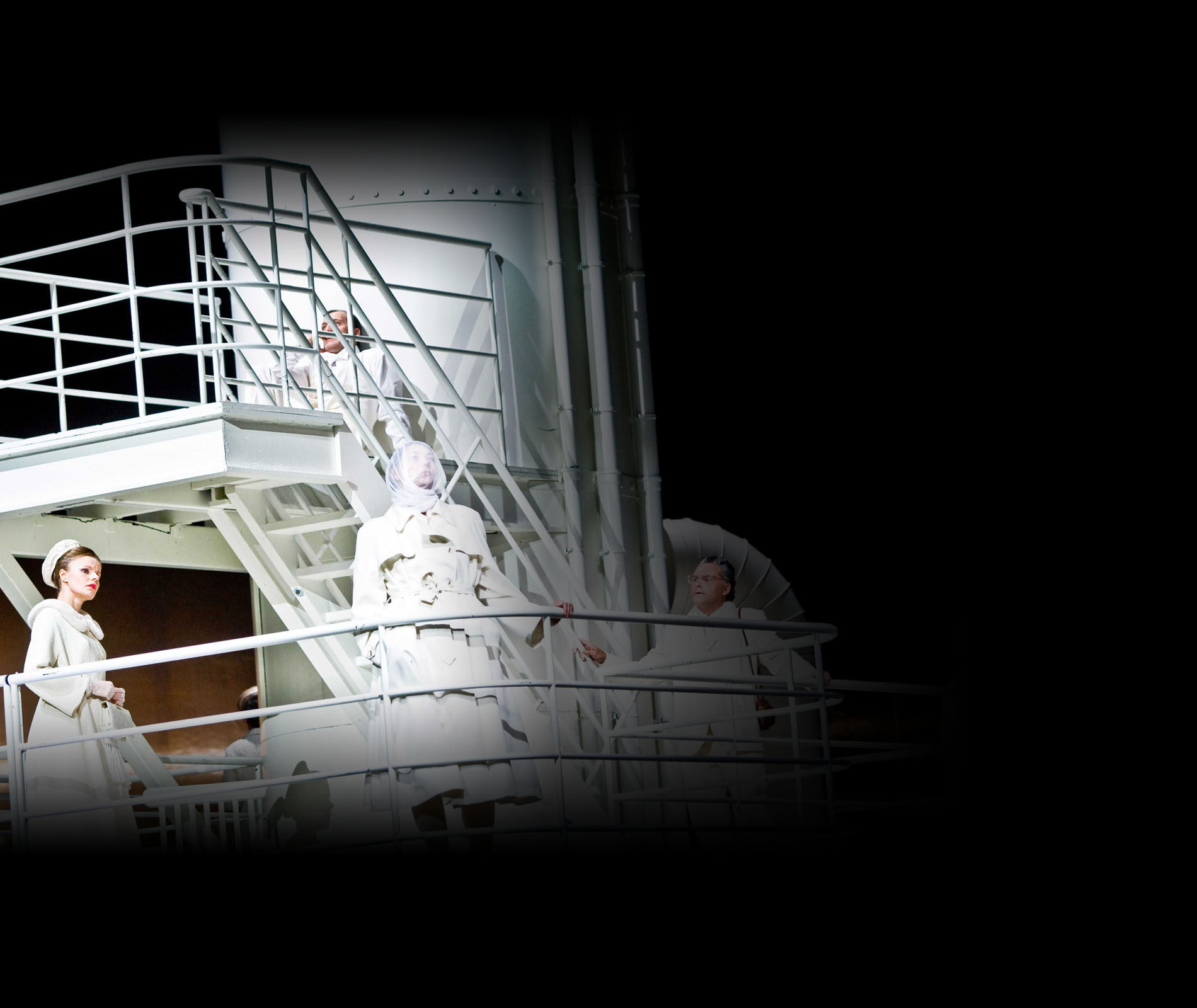
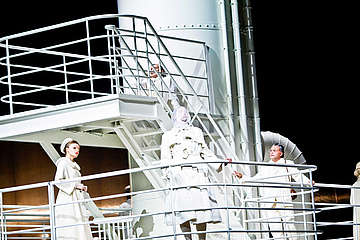
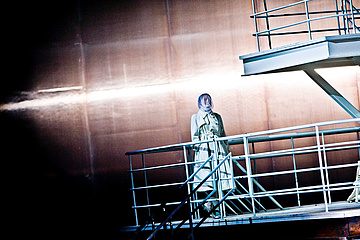
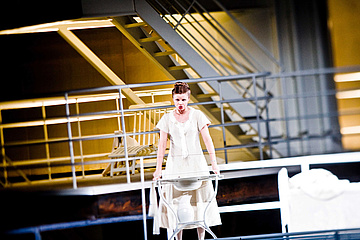
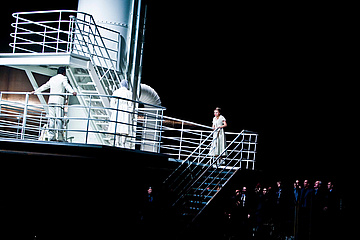
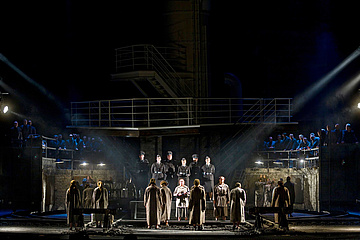
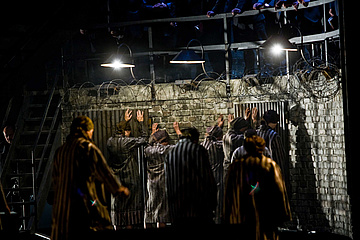
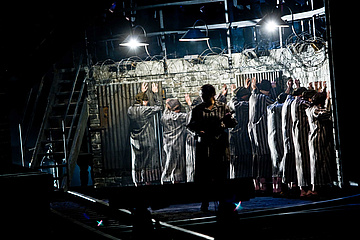
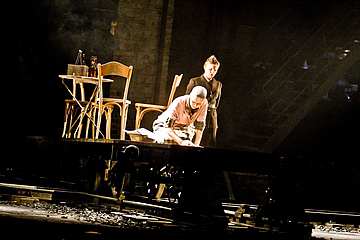
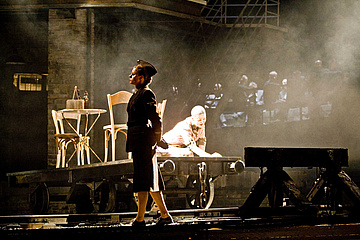
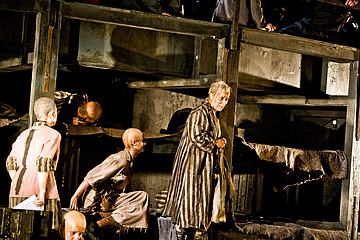
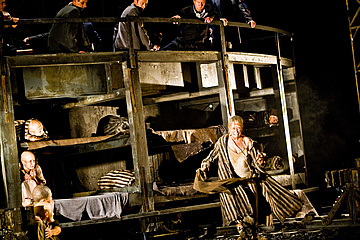
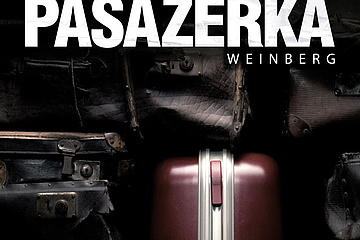
 Wioletta Chodowicz
Wioletta Chodowicz ![[Translate to English:]](/fileadmin/_processed_/c/c/csm_Agnieszka_Rehlis_081_internet__2024_-_kwadrat_34d4c8a265.jpg) Agnieszka Rehlis
Agnieszka Rehlis  Mariusz Godlewski
Mariusz Godlewski 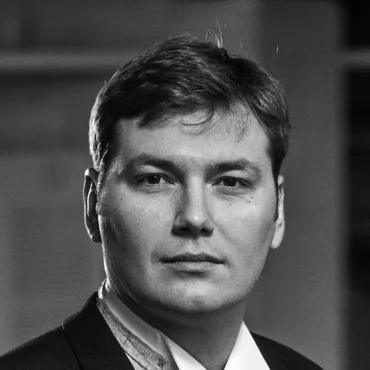 Rafał Bartmiński
Rafał Bartmiński  Agnieszka Tomaszewska
Agnieszka Tomaszewska  Małgorzata Pańko
Małgorzata Pańko  Elżbieta Wróblewska
Elżbieta Wróblewska ![[Translate to English:]](/fileadmin/_processed_/0/2/csm_anna_borucka_2025_-_kwadrat_ef9111580e.jpg) Anna Borucka
Anna Borucka  Małgorzata Olejniczak-Worobiej
Małgorzata Olejniczak-Worobiej  Joanna Cortes
Joanna Cortes  Robert Dymowski
Robert Dymowski  Mateusz Zajdel
Mateusz Zajdel  Czesław Gałka
Czesław Gałka  Katarzyna Misiewicz-Żurek
Katarzyna Misiewicz-Żurek  Małgorzata Godlewska
Małgorzata Godlewska  Patrycjusz Sokołowski
Patrycjusz Sokołowski  Gabriel Chmura
Gabriel Chmura ![[Translate to English:]](/fileadmin/_processed_/d/f/csm_rte-WNO_Artistic_Director_David_Pountney._Photo_credit__Richard_H_Smith_kwadrat_65b5afbeda.jpg) David Pountney
David Pountney  Johan Engels
Johan Engels  Marie-Jeanne Lecca
Marie-Jeanne Lecca  Fabrice Kebour
Fabrice Kebour 

